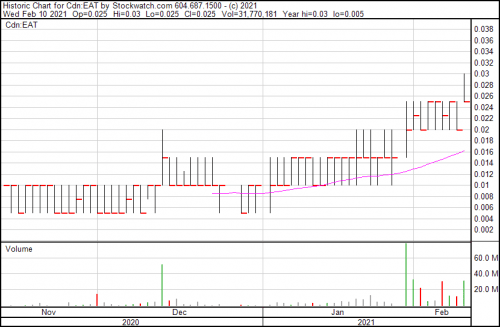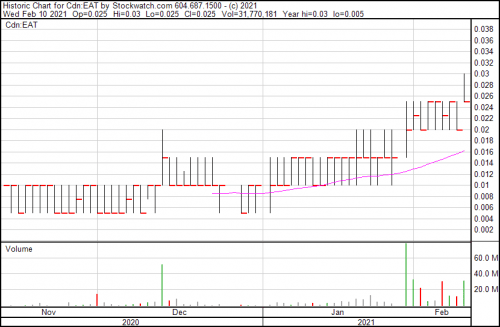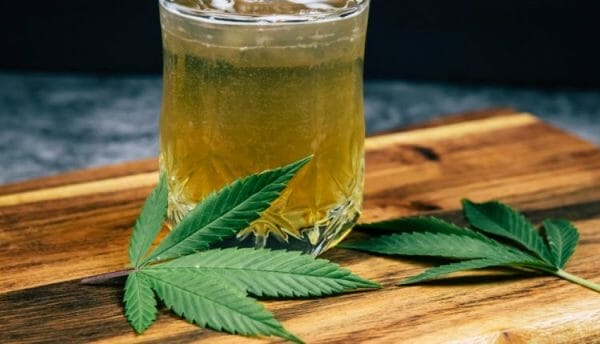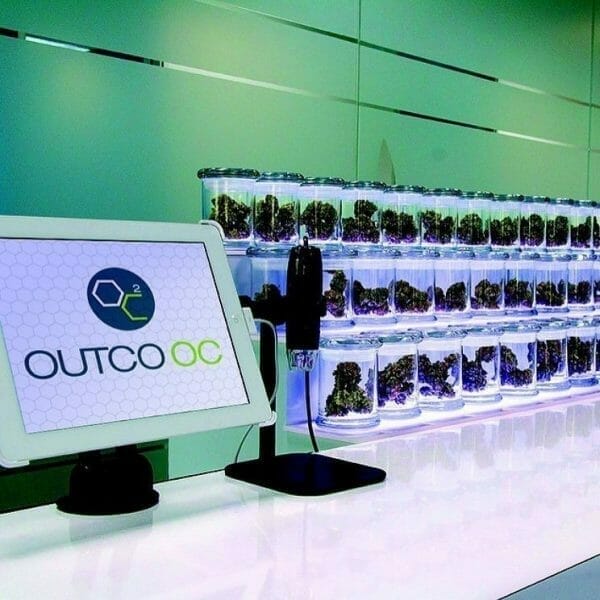Nutritional High International (EAT.C) entered into a research services agreement with KGK Science earlier this week through their subsidiary Psychedelic Science (PSC), according to a press release.
KGK Science will help with PSC’s research and development of mescaline and various other types of psychoactive cacti. This is part of a continuing series of corporate initiatives pushing its strategy to capitalize on the burgeoning psychedelics market.
“We are very pleased with the advances of our science team in developing the path forward for Psychedelic Science Corp. The addition of KGK Science as a strategic consultant is sure to further advance our efforts and help our research and development take shape. Mescaline is widely known, with a history of use dating back to 3600s BC, but in modern times is one of the less pursued phenethylamines, mainly due to the regulatory complexity,” said John Durfy, CEO of Nutritional High.
EAT’s primary focus is on development and manufacturing branded cannabis 2.0 products, ranging from edibles and oil extractions for medical and adult recreational markets. They’re careful to work in jurisdictions that allow that sort of work through regulations, and have brought their flagship FLI edibles and vape lines from production to market in multiple markets, including Colorado where they have won awards and their products are manufactured by Palo Verde.
Now they’re looking towards diversifying their holdings to include psychedelics. PSC’s research team has been on a fact-finding mission, including peering through past studies and anecdotal evidence regarding cacti for treatment potential, dosage information and what strains have been used in the past.
The team has identified the following genera of cacti that are going to be of focus in PSC’s ongoing research and development efforts:
- Lophophora Genus – includes Lophophora williamsii (also known as Peyote – with principal content of mescaline of 7%) and Lophophora diffusa (contains zero to trace amounts of mescaline; pellotine, whose psychoactive effects are comparatively minimal, is the principal alkaloid).
- Echinopsis/Trichocereu pachanol – (also known as San Pedro cactus) has been used in South American traditional medicine dating over two thousand years. The plant is fast growing and can have mescaline content up to 4.7% of dry cactus weight.
- Echinopsis/Trichocereus peruvianus – (also known as Peruvian Torch cactus is also a columnar species cactus that contains lower mescaline concentrations potentially 20 times less than E Echinopsis pachanoi.
- Echinopsis/Trichocereus lageniormis – (also known as the Bolivian torch cactus) is a fast-growing columnar cactus from the high deserts of Bolivia. The plant contains a number of psychoactive alkaloids, in particular the well-studied chemical mescaline typically at levels lower than Echinopsis pachanoi.
Their specific deal with KGK will focus on three key elements in relation to mescaline and other types of cacti that contain psychoactive alkaloids:
- Stage 1: USA and Canada Path-to-Market – assessment of the permissible regulatory route to market and assessment of the safety requirements for that route;
- Stage 2: Gap Analysis – undertaking studies required to bridge the gap between what information is publicly available and what is needed to meet regulatory requirements. The studies include identity/chemical analyses, safety/toxicological studies and other specific requirements for Health Canada and United States Food and Drug Administration;
- Stage 3: Toxicological Assessment – determining all of the major active ingredients in peyote and other psychedelic cacti, historical use, safety margin assessment, literature review of past pre-clinical and clinical studies, and potential interaction with pharmaceutical products.
Now let’s look at the chart.

Nutitional High is up 28.6% today to $0.045. Yes. That’s a penny.
—Joseph Morton







